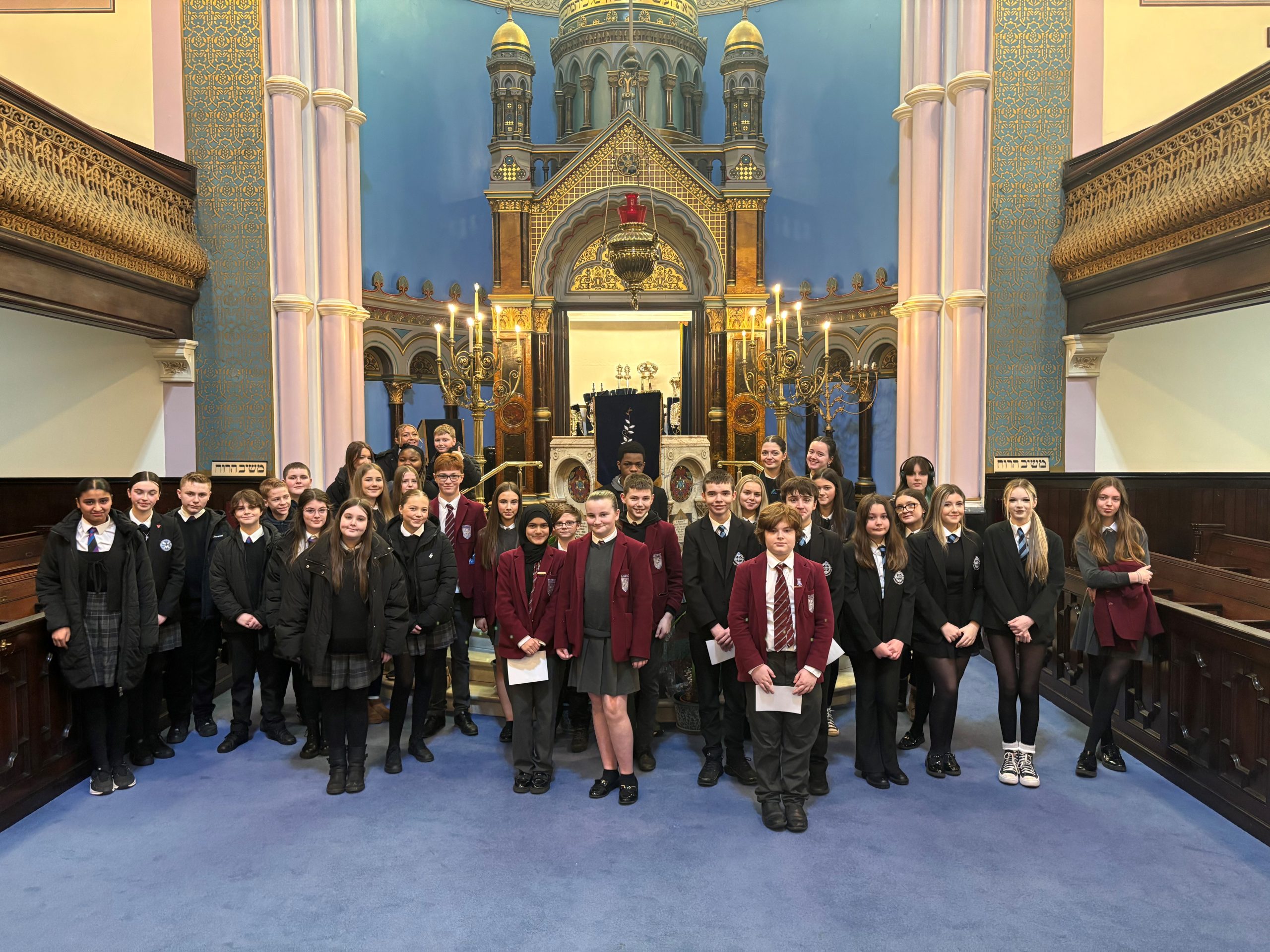On Wednesday 22nd January 2025 the Scottish Jewish Heritage Centre held a special event to commemorate Holocaust Memorial Day. Thirty-seven pupils plus teachers from five secondary schools from East Renfrewshire, Renfrewshire, Inverclyde, Edinburgh and South Lanarkshire attended.
After their arrival we began with a tour of Garnethill Synagogue and of displays of the Heritage Centre. The pupils viewed the timeline display ‘Scotland a Sanctuary’, and were able to explore our Holocaust refugee stories learning kits as well as view the digitised archival material on iPads to explore their own areas, and research the hostel boys who stayed next door to the synagogue during WWII. Harvey Kaplan and Deborah Haase from the Scottish Jewish Archives Centre were on hand to show pupils some original material from the collection, including Kindertransport travel documents, ID cards, passports and photographs.
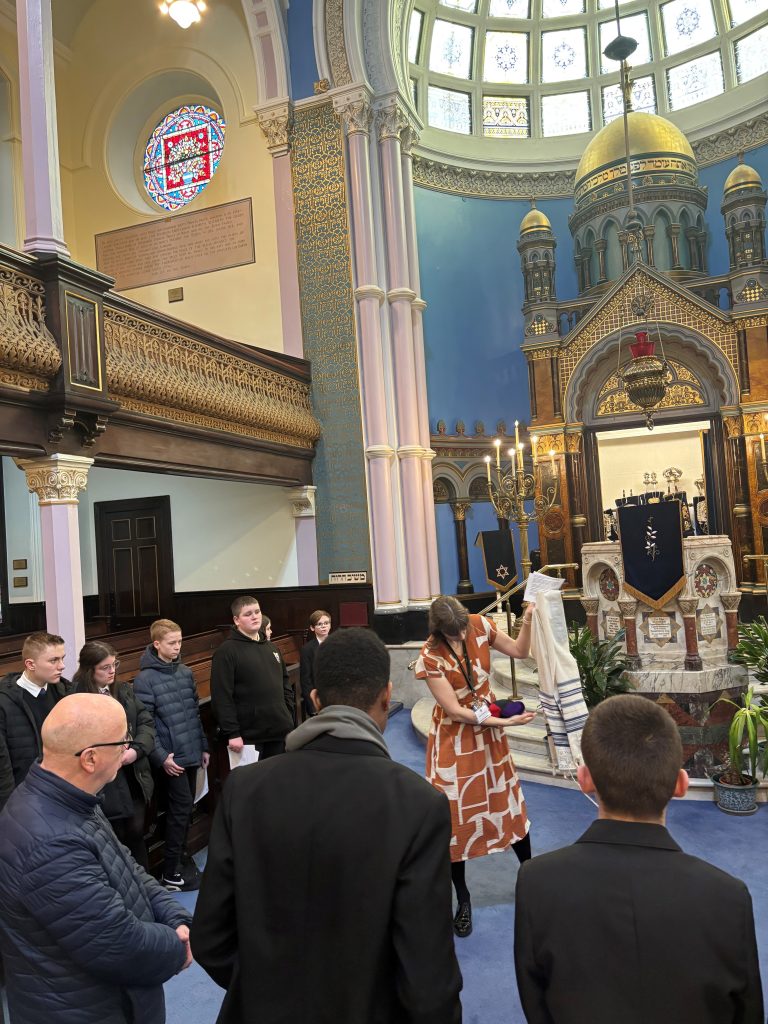
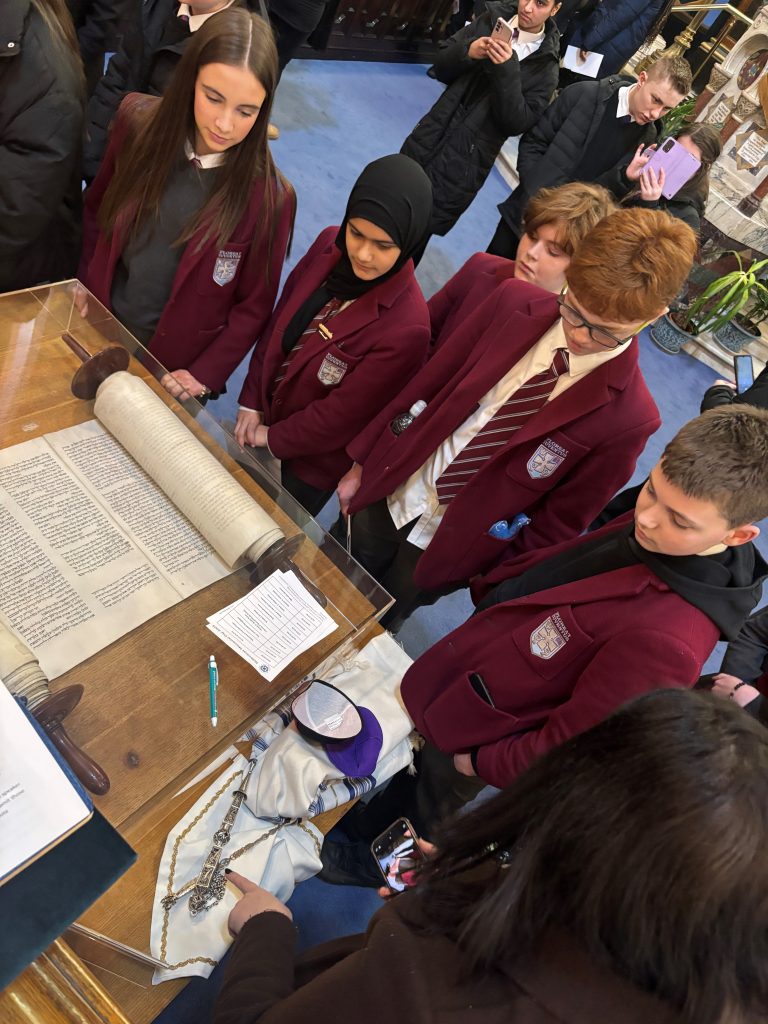
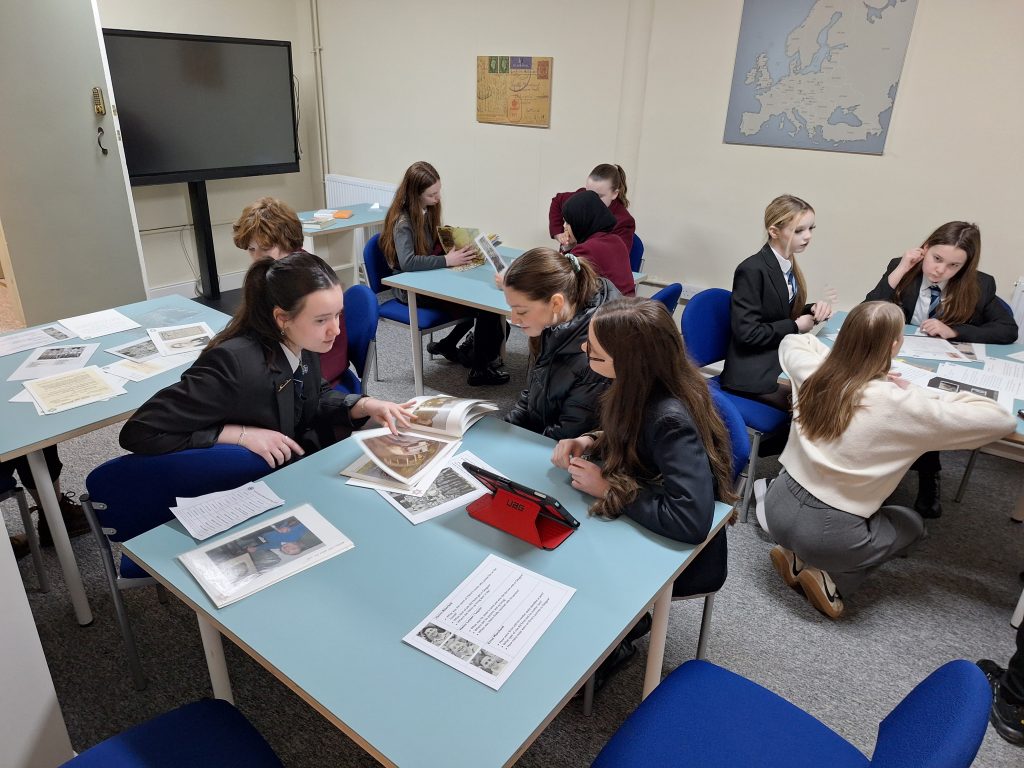
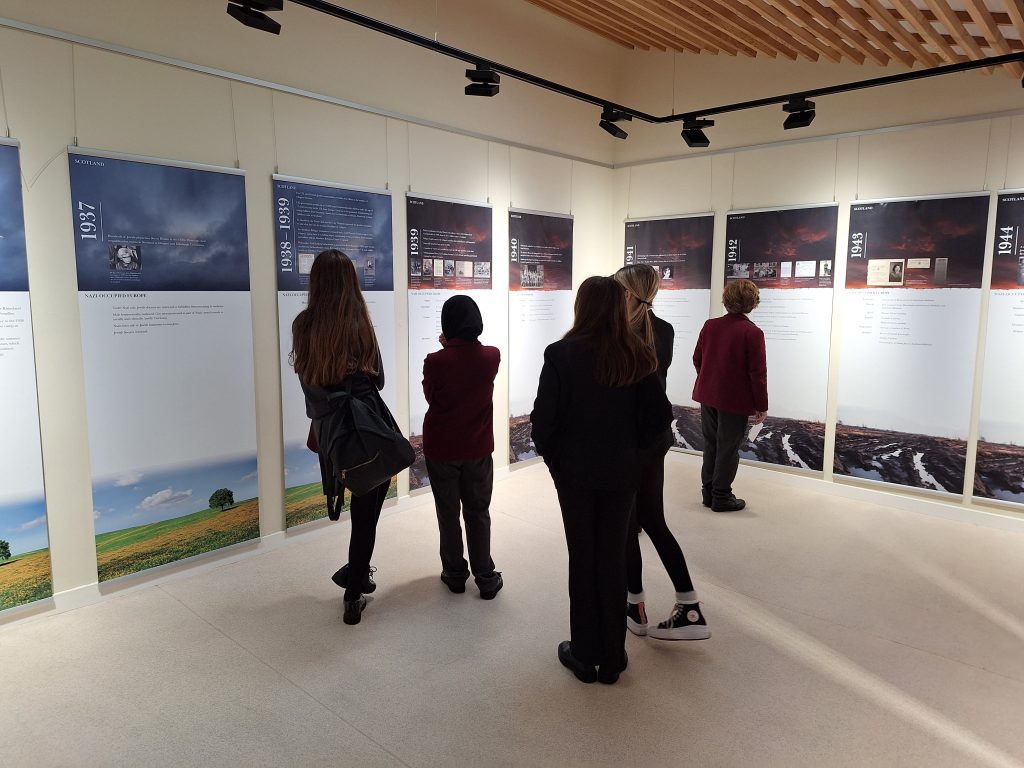
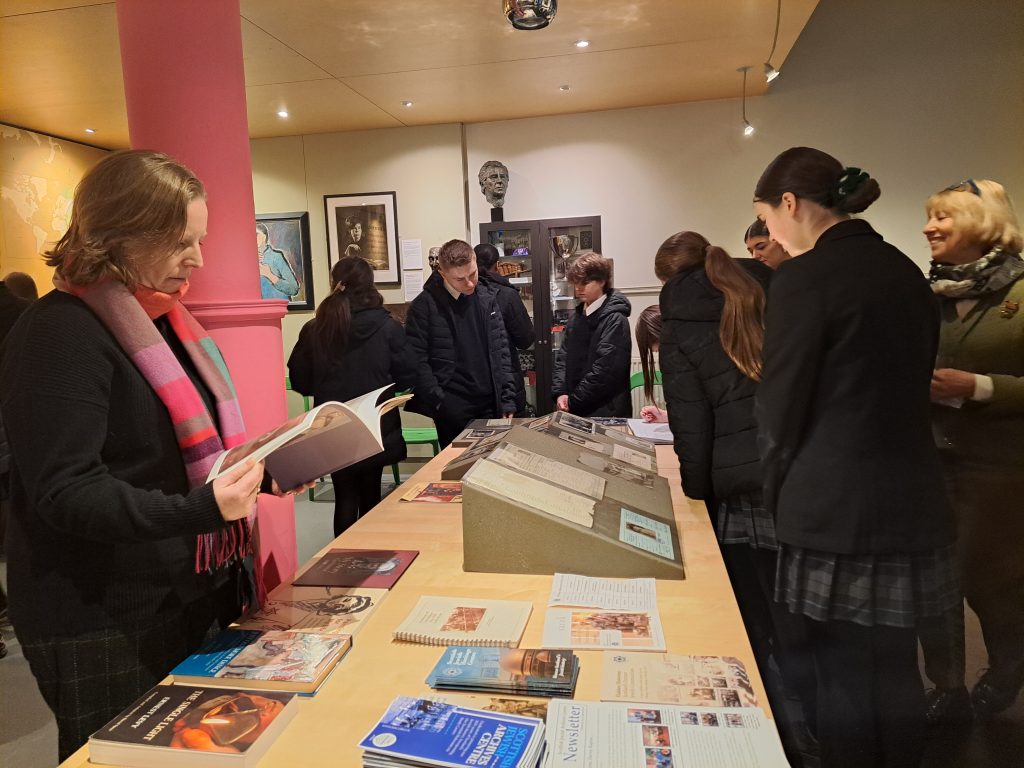
Before hearing from the second-generation speakers, we had a short break where we all enjoyed delicious kosher food supplied by Marks Deli.
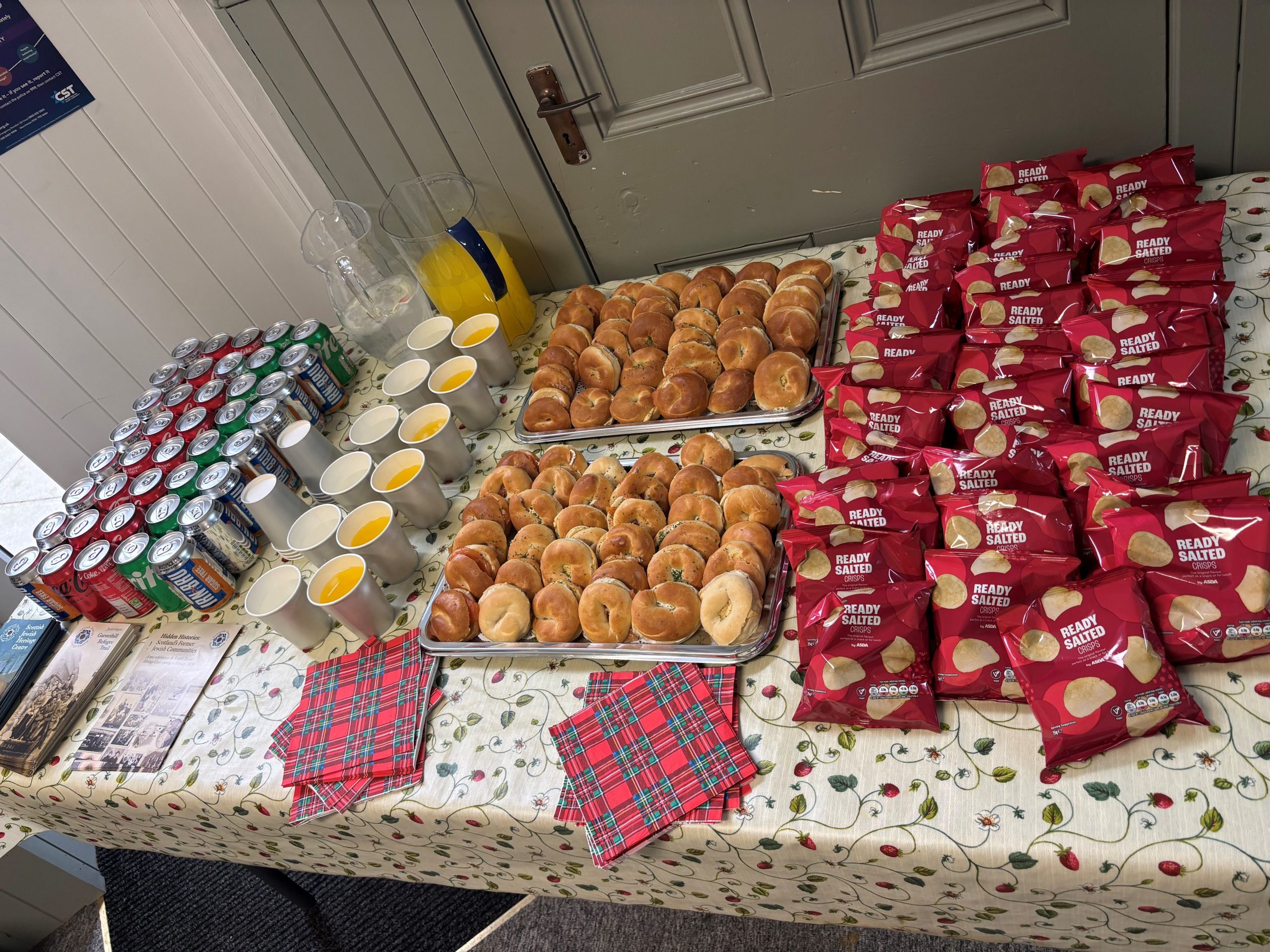
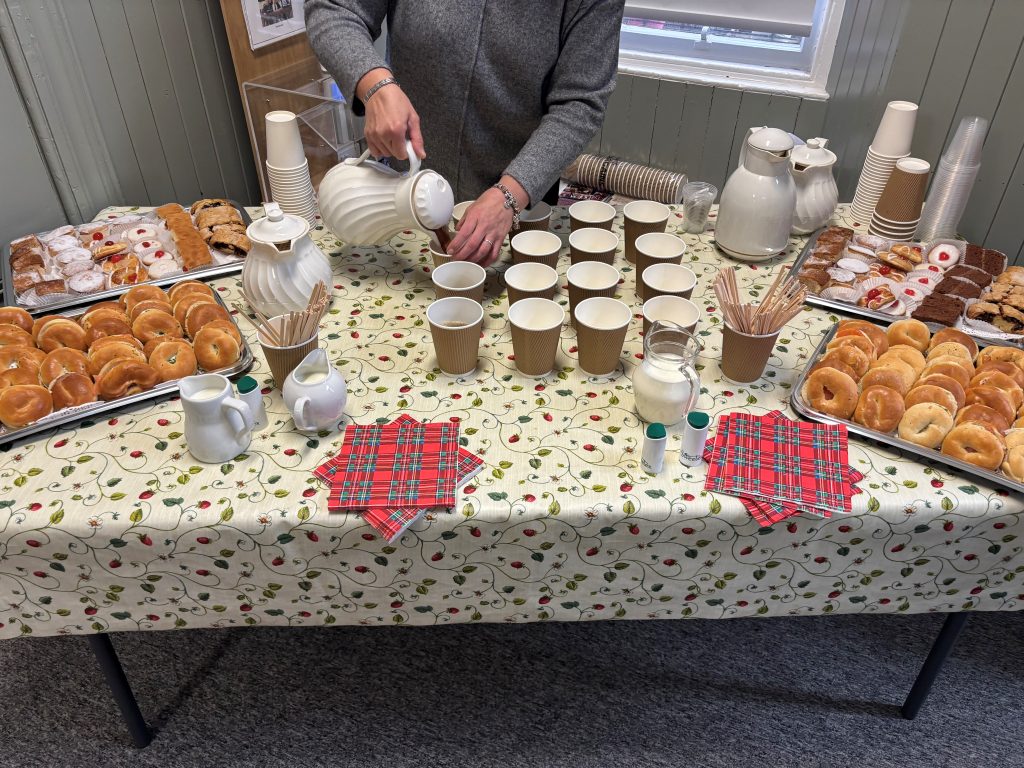
Following on from the break, we spent the rest of the event hearing from our three second-generation speakers.
Geraldine Shenkins-spoke about her mother Marianne Grant
Geraldine Shenkins spoke about her mother Marianne Grant who was born in Prague, in the Czech Republic. In 1942, Marianne and her mum were sent away by the Nazis and survived various concentration camps. Whilst in Auschwitz her bravery and artistic talent saved her and her mother’s life.
Of the experience of drawing for the Nazis, Geraldine said…
“This process was terrifying; she was shaking and knew if she made a mistake or a blob with the ink she’d be finished. She knew she was painting for her life.”
Geraldine Shenkins speaking about Marianne Grant’s experience.

At the end of the war both Marianne and her mother left Bergen Belson concentration camp and began a new life in Sweden. Six years later Marianne met her husband, married, and settled in Glasgow where she brought up her family. In 2003, Marianne was bestowed the freedom of the city for her work raising awareness of the Holocaust. Geraldine said “she used to say it doesn’t matter what colour your skin is white, black, brown, yellow or pink or what religion you are we are all human beings and we should all love each other.”
Philip Rodney- spoke about his father Wolfgang Rimalower
Philip Rodney told the story of his father Wolfgang Rimalower born Leipzig, Germany. After getting involved in an argument following a car accident it was decided Wolfgang should leave Germany to go to an aunt in Switzerland in a fear of being deported. Wolfgang was refused entry to Switzerland; he fled to Italy but he returned two weeks later to his aunt’s, where he was caught by immigration officers.
Wolfgang plead to stay but was barred from the country- he said…
“This would mean my death; I was told in the event I did not leave Switzerland I would be deported and also that things in Germany were not as bad a Jews were making them out to be.”
Philip Rodney quoting his father Wolfgang Rimalower
Wolfgang was turned away at many embassies and borders saying “I was shattered and disillusioned, but determined to find a way to survive”. He received a British visa after a mysterious family friend vouched for him, he was encouraged to change his name to Peter Rodney to disguise his German heritage in case of capture whilst serving in the army.
Philip reflected saying “ignorance is the mother of intolerance and only through education and understanding of the past can we break the cycle of hate that we see.”
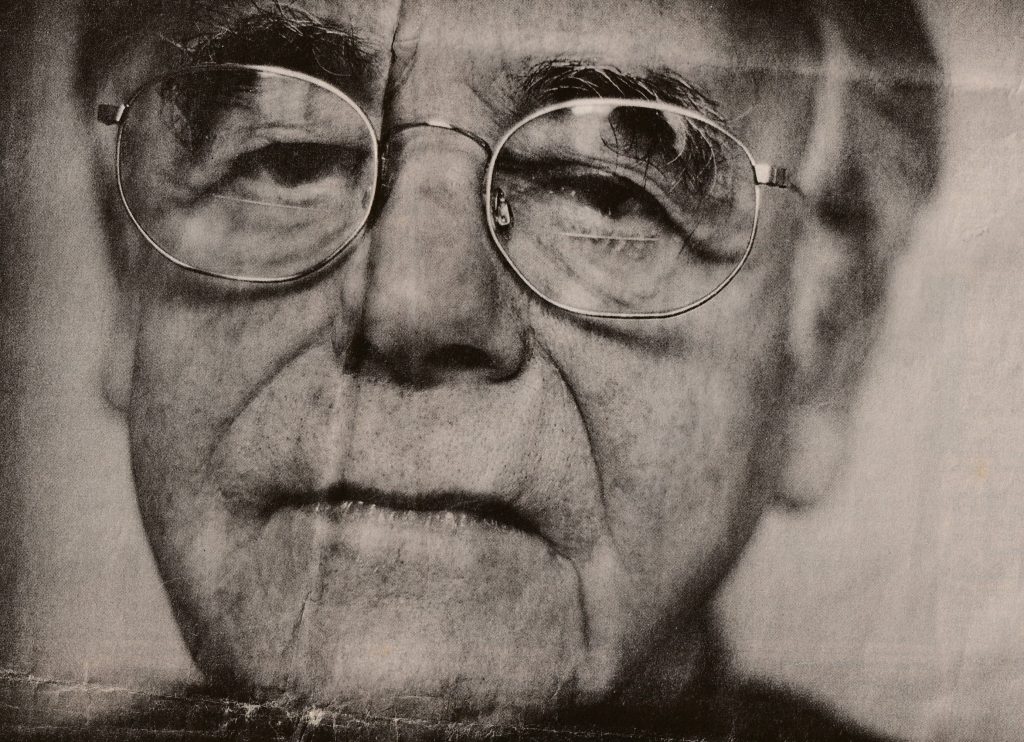
Judy Russell- spoke about her stepfather Ernest Levy
Judy Russell spoke about her stepfather Ernest Levy, born in Bratislava. Ernest spent most of the war in Budapest, Hungary before he was deported on one of the first trains out of Budapest to Auschwitz in 1944.
Judy said…
“He only spent a week in Auschwitz but he always spoke of the place as literally a hell on earth.”
Judy Russell speaking about her father Ernest Levy
Ernest was lucky, as he was chosen for work as he was young and healthy. He spent the next year in work camps until Bergen Belsen was eventually liberated. After the war, Ernest returned to Hungary, where he lived until the 1960s when he came to the UK, married and became a cantor.
Judy said “My father I think was amazingly positive in his attitude and when he told his story and his tales in his books, he always focussed on survival…He used to say the horrors of the holocaust are all well documented but I survived because of the few kind people I met.”
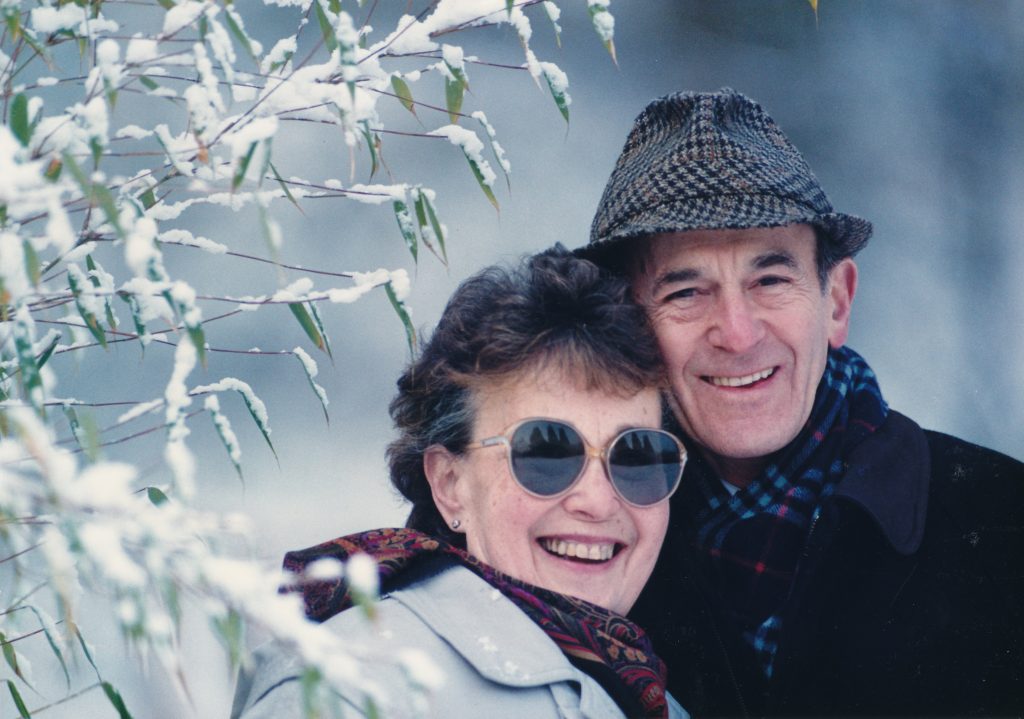
Following the talks, the pupils and teachers had the chance to ask questions about the speakers and their parents’ stories. The young people who attended were fantastic and asked thoughtful questions such as…
- To Geraldine- Do you feel your mother used art as a way to process her experiences during and after the Holocaust?
- To Philip- How was your father’s story influenced your own understanding of resilience, identity, and belonging?
- To Judy- Why do you think your father found it easier to speak about his time in camps than other people?
Before the event, only 6 out of 32 pupils said they were “quite” or “very” knowledgeable about the experiences of holocaust survivors through their feedback. After the event, 31 out of 32 pupils said they were “quite” or “very” knowledgeable about the experiences of Holocaust survivors.
We asked teachers how they planned to use information from the event back at school:
- Aim to incorporate the survivor stories shared and in the archives throughout current courses delivered in our school.
- We will use what we have learned through resources and speakers during HMD and embed with our curriculum.
- We will use this experience to inform our HMD input, history curriculum and continuing work with vision schools and HET.
- To add to our Holocaust unit- personal testimonies. Build on our Vision Schools’ level 1.
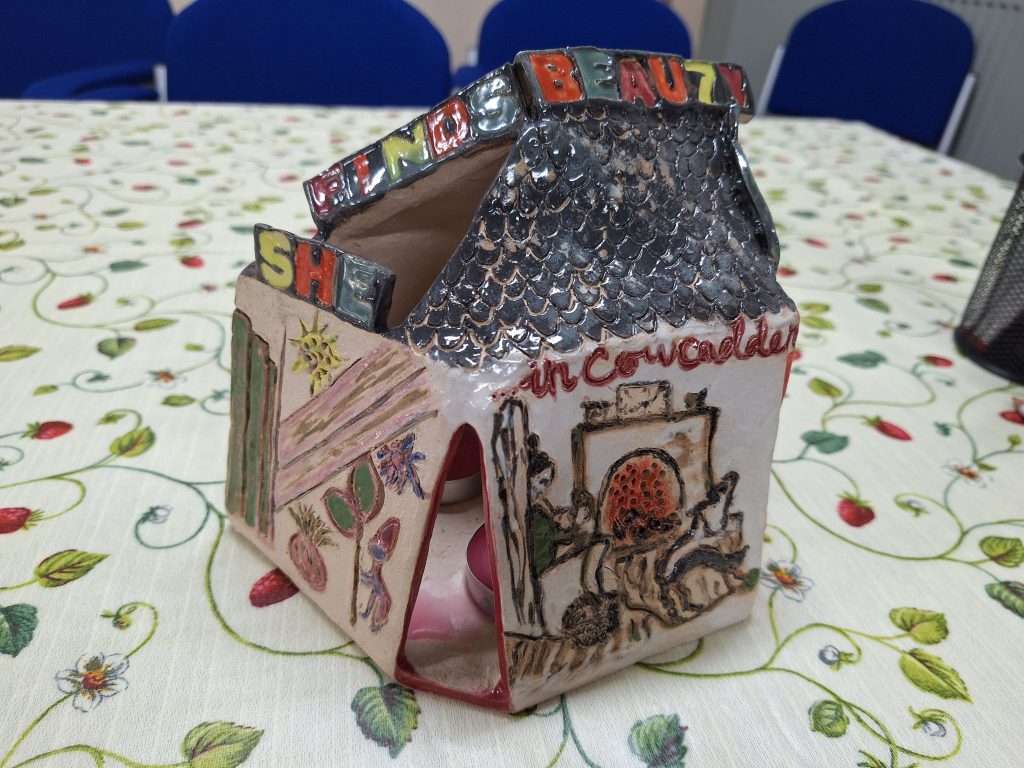
We are incredibly grateful to the speakers who joined us to share very moving, personal stories, and to the schools who engaged so well with the event. The talks were recorded and will be available to view soon on our website, once we have created a new resource page.
